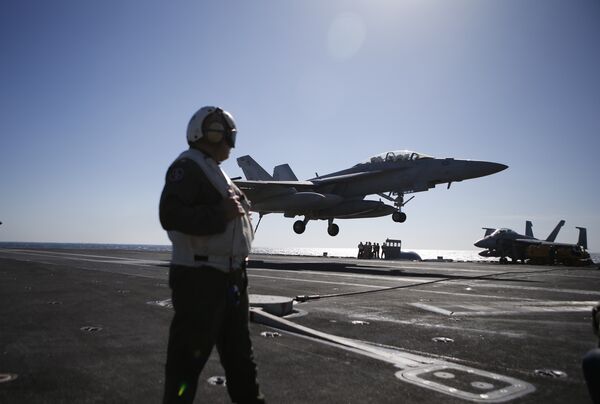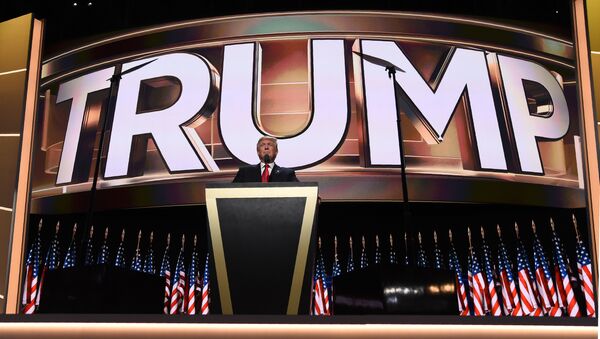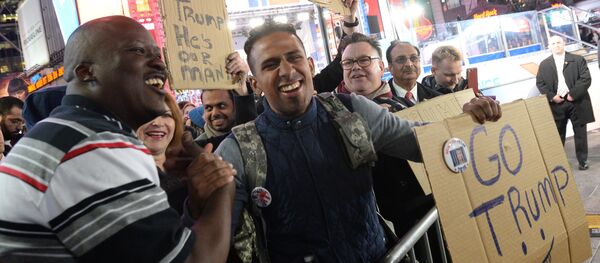In his article titled "How will the Pentagon and NATO change under the new US President, Khrolenko recalled that the American system of state management cannot be reduced to a one-man rule.
According to him, the system stipulates no significant changes in law enforcement agencies and various intelligence services.
A US presidential candidate's pre-election slogans do not always turn into full-fledged state decisions, Khrolenko recalled referring to Donald Trump's previous statements on bolstering relations between Moscow and Washington.
"Considering that the development of armed forces and the implementation of strategies are in line with the economic interests of a state, the Pentagon and NATO will remain the US's priority instruments. Despite the 45th US President's strong desire [for changes], the national military strategy of confrontation with Russia will not be altered," Khrolenko said.
Even so, Khrolenko added, it is safe to assume that "the White House is the last place on the planet where they can hatch plans on the elimination of the alliance."
As for Washington's and NATO's ties with Russia, they deteriorated significantly after the alliance's eastward expansion, Khrolenko said, warning that mending relations with Moscow while simultaneously deploying NATO troops along Russia's borders is unrealistic.

In this regard, he remained skeptical about any possible military and political upheaval in Europe when Trump takes the hot seat in the United States, which Khrolenko said may now consider reducing its military bases abroad.
"However, American pragmatism will eventually prevail, and Washington will continue to support its NATO allies with the US arms supplies to them expected to increase," he added.
Also, Krolenko pointed out that the past few years will see Washington's further efforts to boost its clout in the Middle East and the Asia-Pacific region where huge deposits of oil and gas are concentrated, among other things.
Separately, Khrolenko noted that the White House's plans to deploy elements of the US missile defense system in South Korea which he warned may lead to serious conflicts with Pyongyang and China.
"In this area, Trump may also face geopolitical inertia and conundrums in the east," Khrolenko said.
However, Khrolenko concluded, even despite Donald Trump's personal charisma, Washington's economic interests and its long-term strategy of "extended deterrence" will not allow the 45th President of the United States to substantially change the military and political foundations of American power.





